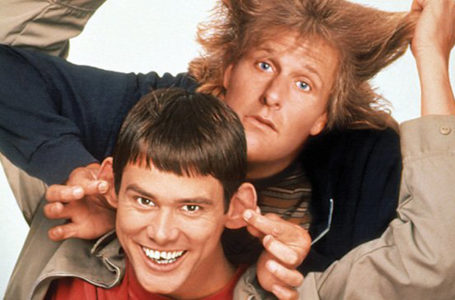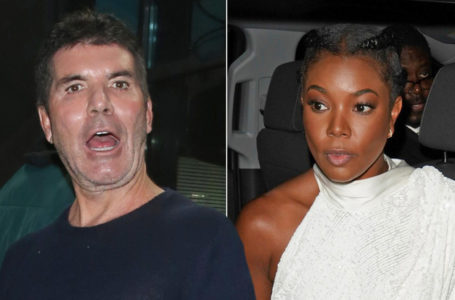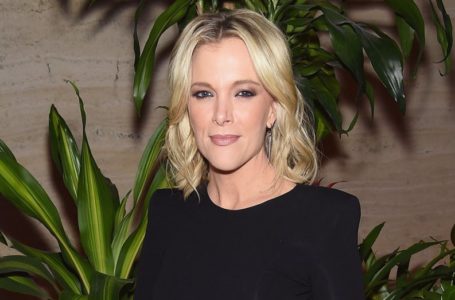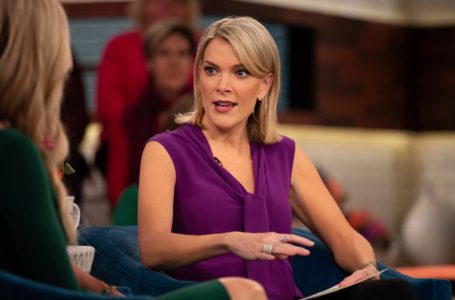In my experience, diversity leads to far better decision-making. I mean it’s obvious that executive teams that are comprised of people with different viewpoints, voices and life experiences can leverage those differences in problem solving and critical thinking. Homogeneity in decision-making can be fatal to a business.
Miles Cooley
In this interview, I had the distinct pleasure of interviewing Miles Cooley.
Miles Cooley is the Chief Legal Officer & Chief Operating Officer of CMNTY Culture. He has long served as the outside General Counsel for media companies, entertainment and sports talent, and high-net-worth individuals. Before taking on the CLO and COO role for the CMNTY Culture portfolio of companies, Miles was a senior partner at DLA Piper LLP, and over the course of his career, regularly handled entertainment disputes and transactions, employment matters, contractual and business torts, intellectual property and trade secret disputes, and real estate matters. While in law practice, Miles developed a reputation for providing practical and results-oriented advice and counsel to his clients, for effectively leading teams of lawyers and other professionals to help drive and accomplish desired business objectives, and for delivering wins both in high-stakes litigation cases and significant business transactions.
Thank you so much for doing this with us! Can you tell us a story about what brought you to this specific career path?
The pleasure is all mine. I’ve been doing legal work for entertainment talent since the beginning of my career, but I sort of fell into it way back when I was a junior associate in a large international law firm. One afternoon, a senior music law partner who had just joined the firm called me into his office and asked if I’d like to help him on a case for a burgeoning hip-hop star who had been sued by an extra on a music video shoot. The extra had allegedly gotten into an altercation with the rapper’s bodyguards and subsequently filed suit. The rapper in question was 50 Cent, the video was for the smash hit “In Da Club” and after the successful resolution of the extra’s lawsuit, I ended up riding along on the 50 Cent rocket ship and doing much of his litigation work for many years after that. I was later hired by Rihanna to be her outside General Counsel, a job I held for several years, and have since represented many entertainers, media companies and high net-worth individuals. Interestingly, my transition out of private legal practice to Chief Legal Officer for the CMNTY Culture portfolio of entertainment companies actually feels like a natural progression from what I’ve been doing and an extension of the past advocacy for clients, both on legal matters and in business, which has helped only better prepare me for this role.
Can you share the most interesting story that happened to you since you began your career?
I think the most interesting story of my career is the one we are writing now at CMNTY Culture. We are building four really exciting verticals — CMNTY Culture RCRDS, for recorded music and we have two amazing artists on our roster so far — RMR and Katlyn Nichol; CMNTY Culture Publishing, which is our music publishing business, to which we’ve recruited the amazing Danny Strick, the former co-President of Sony ATV, to help us build; CMNTY Culture Films, which is producing its first feature film “The Last Plantation”, a powerful social justice story about a landmark civil rights case brought on behalf of Black farmers; and a real estate vertical that is developing CMNTY Culture Campus, which will be an iconic and transformative destination for content creation and culture in Los Angeles. There are so many exciting things happening at our company right now that this is definitely the most interesting period of my career by far.
Can you share a story about the funniest mistake you made when you were first starting? Can you tell us what lesson you learned from that?
It was my first oral argument as a junior lawyer. It was a basic discovery motion that I had briefed and was really excited to argue. The lawyer on the other side was much more senior than I was, clearly more seasoned. The tentative ruling handed out before the hearing was in my favor, so I had the upper hand. The opposing lawyer got to argue first, and he made some good points but it was clear the judge wasn’t going in his direction. Then the judge asked me if I wanted to be heard, and I eagerly launched into a long argument, rehashing things that the opposing lawyer didn’t even argue, so had tacitly conceded. After several minutes, the judge interrupted me, smiling. “Counsel,” she said, “most of the time lawyers in front of me get such good tentative rulings in their favor, they usually just compliment my impeccable legal reasoning and ask me to make it the court’s order. They don’t risk giving me things to think about that could actually encourage me to revisit my tentative and change my mind. Instead of making the tentative ruling my order, I’m going to take the motion under submission.” I’d obviously said way too much and possibly snatched defeat from the jaws of victory. I was so dejected on the drive back to the office, thinking that I’d blown my first oral argument and that I was a horrible lawyer. When I got back to the office, the judge’s clerk had already posted the judge’s order, which was, thankfully, unchanged from her favorable tentative ruling. I sure did learn at that moment that it was way more important to listen to the judge and only say what’s essential to getting a win, than to argue just for the sake of hearing myself talk. Her Honor taught me a fantastic lesson that morning, for sure: quit while you’re ahead!
Can you share three reasons with our readers about why it’s really important for a business to have a diverse executive team?
There are so many reasons, but if I’m limited to just three, I’d say first, having diversity in the C-Suite increases innovation. Studies have made clear that companies with higher diversity in management earn significantly more of their revenue from innovative products and services than companies with less diversity. Second, in my experience, diversity leads to far better decision-making. I mean it’s obvious that executive teams that are comprised of people with different viewpoints, voices and life experiences can leverage those differences in problem solving and critical thinking. Homogeneity in decision-making can be fatal to a business. And third, I think culture drives performance in companies, and that inclusive, equitable cultures, ones that lift up diverse voices and empower diverse excellence, ultimately lead to better performing and, therefore, more profitable companies. It’s not just the cultural moment we’re in. Diversity has always been a good idea and good for business, it’s just that some sectors of the corporate world may not have caught on until now.
More broadly can you describe how this can have an effect on our culture?
Look, there is so much diverse talent out there. It’s a huge opportunity cost to choose NOT to call on that diversity, not just for corporate America but for our society as a whole. So much of it is driven by how much opportunity diverse members of our society have had to demonstrate their excellence. We know the historical track record isn’t great. But the lack of equal opportunities hurts everyone in the end, in my view. So a key goal has to be the creation of opportunities for executive diversity, with real intentionality and urgency. The other thing is how important it is to have diverse people in positions of leadership and authority such that companies actually reflect the diversity in society. Executive teams at companies should actually look like the society that consumes their products and services, and the halo or ripple effect of that is powerful in business and society at large.
Can you recommend three things the community/society/the industry can do help address the root of the diversity issues in executive leadership?
As I said, we all need to increase opportunities for diversity, with real intentionality and urgency. We all need to make diversity, racial equity and social justice central to every aspect of how we do business and who we choose to do business with; and then we all need to work hard to promote and empower diverse voices within and external to our companies. I’m proud that these are things that are at the core of who we are and what we are focused on at CMNTY Culture.
How do you define “Leadership”? Can you explain what you mean or give an example?
I think leadership is really about inspiring others to believe in shared meaning or a common purpose by communicating a clear and distinct positive vision, and then driving that vision with integrity, empathy, humor, transparency and ultimately, responsibility. All of my favorite leaders, be they historical or those who I’ve observed in my personal experience, have been effective because of their ability to inspire and move folks to action, and do it in a positive way, emphasizing team play and shared sacrifice. While also making it very clear that they are accountable to and have the backs of the rest of the members of the team and that they are ultimately responsible for the common endeavor. In my view, being accountable and taking responsibility are crucial to good leadership.
What are your “5 things I wish someone told me when I first started” and why. Please share a story or example for each.
1. “Teams win championships.” I’ve found over the course of my career that the most successful among us are usually as successful as they are because they are a part of a great team and value teamwork over individual effort. I’ve found my work in and with teams, both in the law and in business, has been the most rewarding and, as it happens, has brought me the most success. Trying cases when I was in private practice were amazing experiences in teamwork — a group working together, in the trenches, in the face of significant pressure, working collaboratively towards a common goal, often against very talented adversaries, none of us wanting to let the team down and therefore performing at a very high level, and then being rewarded with a win… there is really nothing like it. I regularly have that same “in the trenches” feeling with my team here at CMNTY Culture and it really makes my heart sing because when I feel it, I know our team is strong.
2. “Your career is a marathon not a sprint.” I think I’ve tended to suffer from the affliction of impatience. Admittedly, it’s not a particularly good trait and I’ve often been impatient in my career in terms of wanting to accomplish as much as possible as quickly as possible. As I’ve grown older and as my career has unfolded, I’ve realized that there are seasons for things, and oftentimes sitting and observing patiently can be more helpful as strategic and tactical approaches than being in constant motion, which I think was much of my early career. I’ve also found that slowing down also provides the opportunity to build the relationships one needs to have a successful career. Patience truly is a virtue.
3. “Always. Be. Learning.” One of the reasons I’ve enjoyed being a lawyer is the variety of things I’ve gotten to learn over the course of my career. With every case, there was an opportunity to learn about a new legal issue, industry or product. Now, in my role at CMNTY Culture, because there are always varied and exciting things we are pursuing as a company, there are novel issues to run to ground and new business lines to explore. And I think that instead of getting hung up on what I don’t know, or feeling inadequate for it, I actually relish the opportunity to learn from and be taught by really smart folks in a given field. I think if my career goes the right way, I’ll always be an apprentice of sorts, learning new things as I go, seeking mastery of some things, but recognizing at the same time that I won’t ever be an expert in most things, and being perfectly ok with that. The goal is to always be learning.
4. “It’s all about mentors, both being one and having many.” I’ve gotten the most out of my profession when I’ve been mentored and equally so when I’ve been a mentor to others. Period.
5. “Be in service.” To me, being in service is the highest form of consciousness, and for me, it’s also been the key to whatever success and happiness I’ve achieved in my career. I know that sounds a bit philosophical, but I’ve found when I’ve been focused on being in service to an idea, a mission or to others, as opposed to being in service solely to myself, great things happen. It started for me when I was in the Peace Corps in Ecuador in the early 1990s. I was a Community Development Volunteer, and it truly was the toughest but most rewarding experience. It really taught me so much about service to something bigger than myself, and to others. Ecuador is a wonderful country, but the first year was so hard, it nearly chewed me up and spit me out the first year, but I stuck it out, connected with a dynamic Ecuadorian counterpart, and we worked together to accomplish some terrific projects over the second year. Notwithstanding how hard I worked or how proud I am of the projects we did, I got way more out of the experience than the people of Ecuador, I’m sure. Similarly, being in service to the law and to my law firm clients while I was in private practice, and now in service to my company and its mission to empower diverse voices in the entertainment and the entertainment businesses, has been hugely rewarding. As Dr. King said, “Anybody can be great because anybody can serve.” If I’ve achieved any greatness at all so far, it has been when I’ve been in service.
You are a person of enormous influence. If you could inspire a movement that would bring the most amount of good to the most amount of people, what would that be? You never know what your idea can trigger. 🙂
Apropos of my reference to my time in the Peace Corps and dropping the Dr. King quote, I think it would be amazing if everyone had the opportunity to have a paid month off each year to work in a service capacity for a charitable organization of their choosing within their community. Either that or some form of national volunteer service obligation after high school, like Peace Corps or Americorps. I just know how much I got out of my two years volunteering and how good it was for me and my future personal and professional life, so I’m a strong believer in it. Imagine the good we could do!
Can you please give us your favorite “Life Lesson Quote”? Can you share how that was relevant to you in your life?
I know it’s often said, but the African proverb “If you want to go fast, go alone. But if you want to go far, go together.” It hits all the points I’ve raised about leadership, teamwork, patience and service at once…
Is there a person in the world, or in the US whom you would love to have a private breakfast or lunch with, and why? He or she might just see this, especially if we tag them. 🙂
Wow, there are so many amazing people around the world that fit this description, but two people come immediately to mind. One of them is Ken Chenault, THE trailblazer’s trailblazer, because I’d love to hear him talk about what it was like to be one of the first African-American Fortune 500 CEOs, to tell him that he inspired me as a kid because he was running companies and so few of us were and to thank him for that, and to have him, as the Dean of Black American business executives, share his thoughts on what he thinks we need to do to bring more Black people into positions of executive leadership in American business. The other is Naomi Osaka because she is literally changing not just the game of tennis, but the game writ large in terms of how athletes, and specifically, athletes of color, relate to their sports, their fans and themselves. Her recent stands on BLM and mental health were so thoughtful, self-aware and self-preserving. Besides being an incredible tennis player, she’s one impressive, and powerful, young woman. It would be great to hear directly what motivates her beyond what I can see from her wise and empowered choices. I’d definitely buy either of them a meal in a heartbeat.
How can our readers follow you on social media?
I’m @milescooley1 on Instagram, which is my preferred social media platform, and please check out @cmntyculture and @cmntyculturercrds too.
This was very meaningful, thank you so much!





